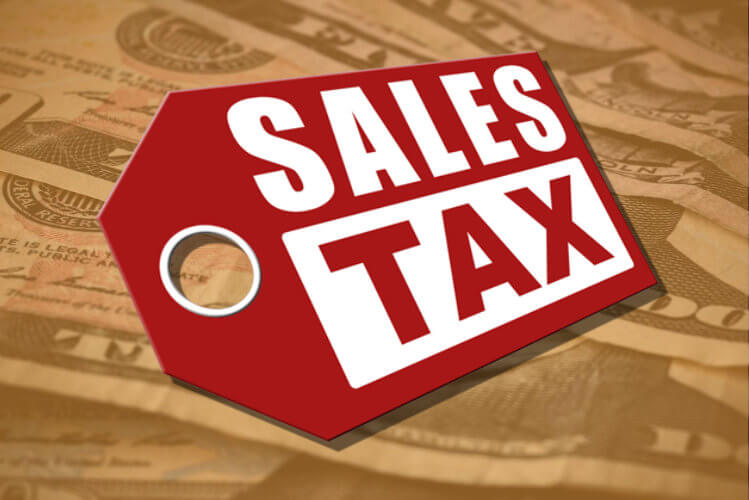By Lauren Stinson
Since the South Dakota v. Wayfair ruling more than five years ago, economic nexus has remained as a huge factor for sales tax implications. Following the Supreme Court ruling, many states quickly adopted economic nexus laws, which have required companies selling in a multistate environment to collect tax in states that they have a substantial amount—as defined by each state—of sales. The Wayfair ruling was looked at as a way to even the playing field between in-state and out-of-state companies. In-state companies were at a disadvantage of having to charge sales tax when most online sellers did not. With the rise of online sellers, local companies are no longer at a disadvantage from their out-of-state competitors.
Companies that historically only needed to file tax returns in a few states found themselves having to file returns in almost every state in the U.S. These companies were now burdened with needing to keep up with the nexus thresholds across 50 states and the different taxability depending on the type of product or service. Additionally, the cost of compliance for filing a significant number of returns exponentially increased.
How Economic Nexus Will Impact Your Businesses
For the last 12 months, state revenues have been declining and states are looking for different ways to bolster their incoming cash flow. Prior to the South Dakota v. Wayfair ruling, typical revenue-generating activities included raising the sales tax rate or expanding the tax base, which often hit state residents the hardest. States are now aiming to ensure that out-of-state companies are compliant with all tax obligations to seemingly take the tax burden off their local residents. Mandating sales and use tax rules and regulations for out-of-state non-compliant taxpayers is a win-win solution for raising state revenue.
For the above reasons, state departments of revenue (DORs) are aggressively looking for out-of-state companies that have met economic nexus thresholds. This can be done via nexus questionnaires requiring detailed analysis of sales into the state or scrutinizing the effective date put on a registration application. DORs seem to have taken the approach that new taxpayers need to prove they did not establish economic nexus in the past, and they are holding them liable for uncollected tax if they did. This is complicated because each state determines economic nexus against a variety of factors—from dollar threshold, number of transactions, time period, and more.
Guidance Through the Complexities of Economic Nexus
Companies can stay ahead of obligations through a few simple steps:
- Economic nexus evaluations: There should be a yearly review of the volume of sales across all states. If there is rapid growth, these reviews should be done more frequently. The goal is to register ahead of hitting the nexus threshold so there is no point in time where sales tax is not collected when it is due.
- Physical nexus evaluations: Physical nexus still trumps economic nexus, meaning If you have sales representatives, 1099 independent contractors, or any employees working or performing services in the state, physical nexus will have been created. As remote workers have become increasingly popular, it has created filing obligations that states are focusing on as driver of nexus. By cross-checking with payroll returns, companies that may be non-compliant for sales tax can be easily identified.
- Check tax automation systems: There are many effective types of software for accounting systems or shopping carts to automatically calculate sales tax. However, these engines cannot be set up and forgotten about. The reality is that tax laws are dynamic, constantly evolving, and subject to change. Tax engines must be regularly updated to reflect changes in the business, such as the nexus footprint and new products and services for proper tax collection.
- Reconciliation of tax collected to tax returns: This will help identify any gaps in compliance and identify the most egregious problem in the world of sales tax—tax collected but not remitted.
If you find your company is not compliant with their sales tax obligations, there are a few ways to remedy the situation. The most popular remediation is through a voluntary disclosure agreement (VDA), which offers companies the opportunity to clear all tax exposure. This is typically done by paying tax due within the open statutory period while limiting the lookback period and waiving penalties. It is important to note that acceptance into such programs may be denied if a business has been previously contacted by the DOR.
A word of caution to companies that think they can just register today without remedying past liabilities: this rarely works. On many registration applications, there is a perjury section where you are attesting to the facts. Additionally, registration applications often trigger scrutiny of the effective date and could take a VDA opportunity off the table.
While South Dakota v. Wayfair changed the foundation of sales tax more than five years ago, the ripple effects are still as strong. Due to the complexity of nexus and sales tax obligations, it is important to proactively meet with a tax professional to ensure no mistakes are made when identifying when and where to register, file, and pay sales tax.
ABOUT THE AUTHOR:
Lauren Stinson is a partner and sales and use tax leader at top 30 accounting firm Cherry Bekaert.
Thanks for reading CPA Practice Advisor!
Subscribe Already registered? Log In
Need more information? Read the FAQs




